Central Washington Field Trip:
Week 7 -2013
For week 7 of the Wilderness Certification, we headed out on a field trip to the dry habitats of central Washington State to study desert ecology, tracking, and medicinal plants. Its an environment much different than the moist temperate rainforest where we live and study at the main campus.
We arrived in Umtanum Canyon on Tuesday afternoon and half of the class headed out tracking local wildlife species such as mule deer, bighorn sheep, coyote and elk. The other half headed out to learn native desert plant species and ethically harvested certain plants to make natural medicines.
Below students display their bounty of various medicinal plants before we processed them and made medicines which strengthen the heart, cure headaches and heal the lungs from respiratory ailments.
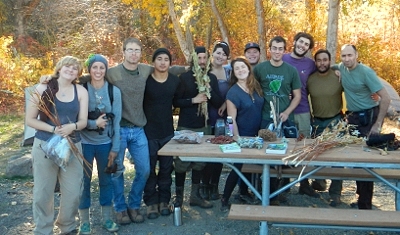
On day two we headed a little farther east to the Vantage area and the Potholes Dunes. In the Vantage area we ran a tracking exercise to help prepare students for the evaluation that they'll be taking at the end of their program. At Potholes Dunes we taught the ins and outs of human tracking skills. For a portion of the day we split the class into groups and had them track and evade one another using tactics learned in class.
Below we see one of the groups sneaking up a ridge to surprise the opposing group.
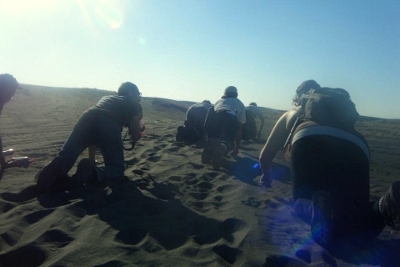
Here student Sam loads a squirt gun before heading out on another human tracking mission.
On the last leg of the trip, we continued to study local ecology by tracking wetland species and identifying birds at the Columbia Wildlife Refuge. This was probably the richest area for wildlife species that we encountered the entire trip and we all wished we could have stayed at this particular location for another week if we could.
Below the class circles up for a morning lecture on survival trapping before heading out to the wildlife refuge.
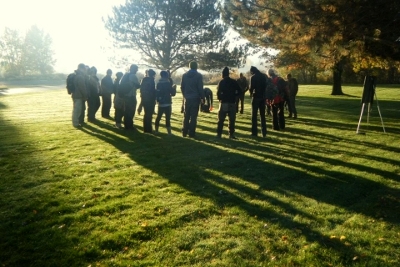
Students gathered for a photo opportunity atop one of the ridges at the refuge.
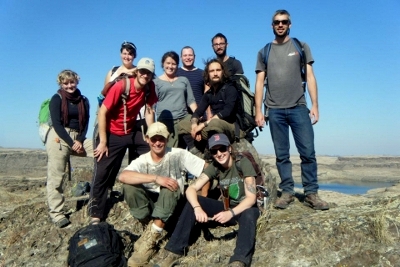
All and all it was an amazing trip
where the students furthered their knowledge in tracking, bird
language, survival techniques, natural medicines, and plant
identification. It really is fun and rewarding to see them absorb
and put into use all of this information and transform from a class
into a family. Looking forward to the next trip together!
Next: Weeks 8 & 9: Stone Tools and Intro to Permaculture Intro
Learn about the Alderleaf Wilderness Certification Program,
our in-depth, nine-month course that trains students to teach and apply
wilderness survival, permaculture, ethnobotany, wildlife tracking, naturalist, and
outdoor leadership skills.
Return back to AWCP Highlights
Is The Essential Wilderness Survival Skills Course Right for You? Take the "Online Survival Training Readiness" Quiz
See for yourself if this eye-opening course is a good fit for you. It takes just a few minutes! Get your Survival Training Readiness Score Now!
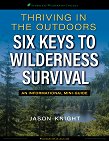
Grow Your Outdoor Skills! Get monthly updates on new wilderness skills, upcoming courses, and special opportunities. Join the free Alderleaf eNews and as a welcome gift you'll get a copy of our Mini Survival Guide.

 The Six Keys to Survival: Get a free copy of our survival mini-guide and monthly tips!
The Six Keys to Survival: Get a free copy of our survival mini-guide and monthly tips!
Learn more